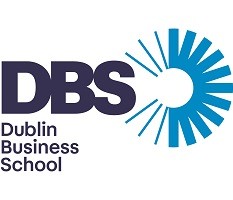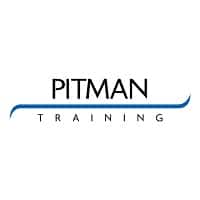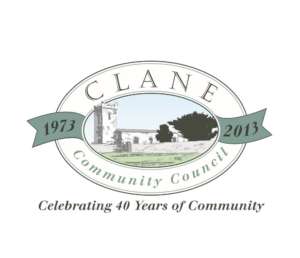Course Description
BA (Hons) Business (Law)
Dublin Business School (DBS)
Overview
The BA (Hons) in Business (Law) degree programme incorporates a balanced mix of specialised business modules, geared toward students who, whilst wishing to study for a general business degree, choose to focus especially on the legal component throughout the duration of their studies.
Aims & Objectives
The overall aim of the BA (Hons) Business with Law is to provide students with an integrated, balanced and flexible business education and to enable them to develop the business, legal and personal skills required to establish them in their subsequent careers.
• To provide students with knowledge and understanding of the fundamentals of business and the principles of subjects relating to many aspects of the business
• To develop and nurture in students, a methodical approach to analysis, problem solving and decision making.
• To provide opportunities for personal development
• To develop students’ learning skills to meet the demands of postgraduate study
On completion of this programme students should have acquired the skills to:
• Demonstrate a foundation in the core areas of law that affect the functioning of a commercial environment
• Demonstrate a clear understanding of the application and impact of the legal concepts that affect management and operational decisions from a national and EU perspective
• Understand a range of business functions and the multi-disciplinary nature of business
• Apply appropriate academic theories and concepts to a range of business and management issues
• Demonstrate a range of skills required by managers
• Understand the influence of the international context on legal decisions
Mature
All EU nationals aged 23 years before 1st of January in the year of application are classified as ‘mature applicants’. Mature learners can apply directly to the college and will be assessed on basis of age, work experience and educational attainment as outlined in the DBS Quality Assurance Handbook (QAH).
Course Content
The BA (Hons) in Business and law programme has the following content and is typically completed over 4 years part-time.
Stage 1
- Maths and Stats for Business
- Business Context and Organisation
- Marketing Essentials
- IT Essentials
- Economic Perspectives
- Learning to Learn
- Introduction to Business Finance
Stage 2
- Management
- Financial Management
- Business Information Systems
- Business Ethics and Research Practice
- Advanced Economic Perspectives
- Principles of Business Law
- Employee Relations and the Law
Stage 3
- Strategic Management
- Global Business
- Human Resource Management
- Corporate Law and Governance
- Advanced Business and Commercial Law
- Capstone Project
Teaching and Assessment
Student assessment will be based on a combination of continuous assessment and end of year examinations. Continuous assessment will include essay writing, case studies, presentations, literature reviews and projects, and students will be required to work individually as well as in groups. End of year examinations are typically held in late April/early May. Year 1 subjects may also include an in-class assessment usually held in December.
Structure
Stage 1 – Seven mandatory subjects provide foundation knowledge in core business areas and include employability and personal development modules which run throughout the programme.
Stage 2 – Further develops student knowledge in business. Students are also introduced to the principles of business and employee law.
Stage 3 – At stage 3, the business focus is on strategic management, global business and human resource management while further specialist legal knowledge is developed in areas such as commercial law and corporate law and governance.
Career Opportunities
The structure and content of this degree and stream enables students to progress to a career where a sound knowledge of relevant law is a definite asset. For example, many large organisations have legal departments, where comprehensive business knowledge augmented by a solid foundation in legal principles is required. Graduates from this programme will also be well placed to pursue a business career in areas where legal knowledge is highly relevant – for example, human resource management, finance, purchasing, compliance and contracts.
Fees
For a full list of part-time undergraduate business degree fees click here.
Visit Us
Open days are a great way to help you make your decision about DBS. As well as experiencing our outstanding facilities, you’ll have the opportunity to received personalised advice from academics from your subject area, meet current students and also have your questions answered on general subjects such as entry requirements, student support and the admissions process. Find out when our next Open Day is taking place. Our admissions office is located in our Aungier Street campus and you are welcome to visit the college to speak with a member of our admissions team Mondays to Fridays, 8:45am – 5:15pm. Alternatively, you can contact us by email.
| College Name | Dublin Business School (DBS) |
| Course Category | Business, Business & Law |
| Course Qualification | Honours Bachelor Degree |
| Course Location | Dublin, UK |
| Location Postcode | Dublin 2 |
| Course Duration | 4 Years (Part-Time) |
| Awarding Body | QQI |
| Title of Awarding | BA (Hons) in Business Studies (Law) |
| Entry Requirements | Entry Requirements The minimum entry requirements for the BA (Hons) Business (Law) are: • Leaving Certificate – Applicants must obtain a minimum of 2H5s and 4 O6s/H7s, to include English or another language, or • FETAC – A full Level 5 FETAC Award (i.e. 8 modules) with at least 3 distinctions, or • A-Levels / GCSE – Applicants must obtain a minimum of 4 GCSE passes at grade C to include Mathematics and English or another language, plus 2 A-Level passes at grade C or higher, or • BTEC – Applicants must obtain a minimum of a BTEC National Diploma in a cognate area. • For applicants whose first language is not English and who have not previously undertaken a degree taught through English, evidence must be provided of proficiency in English language equivalent to B2+ or above on the Common European Framework of Reference for Languages (CEFRL). This must be evidenced through a recognised English Language test such as IELTS, Cambridge Certificate, PTE or DBS English Assessment. Test certificates should be dated within the last two years to be considered valid. |




Comments, Questions & Reviews